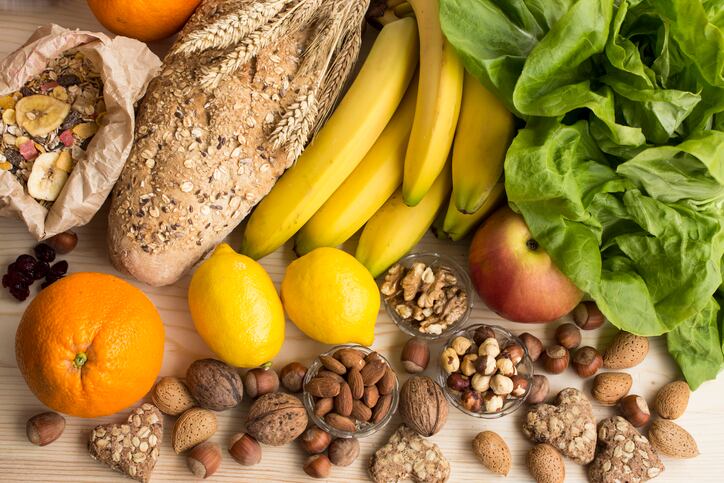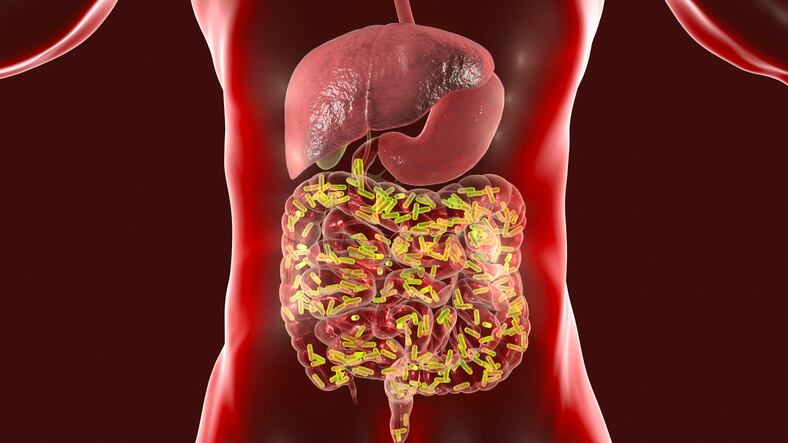There was a trend towards lower symptom severity scores for abdominal pain and incomplete bowel motions for participants who met the fibre target, but higher symptom severity scores for flatulence, although this trend was not significant.
A high fibre diet may thus assist with the maintenance of new microbiota introduced by FMT, researchers believe,
Faecal microbiota transplantation is the infusion of homogenised and filtered stool from a healthy donor into the gastrointestinal tract of an unwell recipient to alter and diversify the gut microbiota. It has been used in the treatment of gastrointestinal conditions, such as irritable bowel syndrome (IBS) and inflammatory bowel diseases (IBDs), including ulcerative colitis (UC) and Crohn’s disease (CD).
Dietary fibre produce metabolites such as short chain fatty acid and help maintain levels of beneficial bacteria in the gut, which may support successful FMT treatment.
However, research on the role of dietary fibre in supporting FMT and post-FMT is limited.
So, researchers from Australia conducted a pilot study to study the dietary intake of individuals undergoing FMT and compare the intake with current Australian dietary guidelines.
In particular, they wanted to investigate if a high fibre diet of >30 g/day would influence symptoms and quality of life of FMT participants.
“Increasing our understanding of the dietary intakes of individuals undergoing FMT is critical on two accounts. It may inform further research to understand the role of all aspects of diet in FMT, and, most importantly, provide informed clinical recommendations to individuals undergoing FMT,” they wrote in the journal Nutrients.
Methodology
A total of 18 adult individuals (aged 16 and above) with IBS, UC, or CD and undergoing FMT were recruited in the study.
The study had intended to recruit at least 31 participants but had to be ceased early due to the COVID-19 pandemic
All participants were instructed to follow a high fibre diet (minimum of 30 g/day), and encouraged to take prebiotic supplements (inulin and pectin).
They were tasked to complete the validated clinical symptom and quality of life (QOL) questionnaires at baseline, week four, week 12, and week 24 of treatment.
Participants were also asked to complete a three-day weighed food diary at week four, week 12, and week 24.
Scores were then calculated for symptoms, quality of life, food intake and compared to Australian dietary guidelines.
All participants reported baseline symptoms of abdominal pain, nausea, bloating and reduced quality of life.
All aspects of QOL except physical functioning were found to be significantly lower than the Australian population norms (p < 0.001).
The study was intended to provide information for developing dietary education resources for use in clinical practice and directing future interventional research studies.
Findings
Of the 18 participants, 8 met the recommended 30g of fibre intake (median 35g/day) which included supplementation.
11 participants reported taking at least one dietary supplement, all of which included fibre within the supplement. 6 participants were also taking a vitamin/mineral supplement, and 3 used a protein powder.
While the pilot nature of this project meant that significant associations could not be identified, there was a trend towards participants who met the fibre target having lower symptom severity scores for abdominal pain (p = 0.19) and incomplete bowel motions (p = 0.08), but higher symptom severity scores for flatulence (p = 0.16).
Further research is required to determine the benefits of such an intervention, comparing FMT to high fibre diet or FMT to supplementation to determine causation.
Researchers acknowledged that the study lacked stool metagenomics or metabolomics analysis, and was studying a small, heterogeneous sample size from a single centre with limited follow-up.
The diets of FMT donors were also not studied, which be a key variable in improving outcomes after FMT, hence future studies should include dietary analysis of habitual intake of both recipient and donor.
This findings also suggest that dietary intervention should be customised to patients, by considering the dose and source of dietary fibre used.
This pilot study suggest that participants with gastrointestinal conditions undergoing FMT do not consistently meet the recommended intakes of fibre, calcium, fruit, vegetables, dairy, or grains.
Fibre is a known modulator of the gut microbiome, so such individuals should be encouraged to consume more of such food groups, during their FMT treatment and after.
Source: Nutrients
https://doi.org/10.3390/nu13051487
“Dietary Intakes of Recipients of Faecal Microbiota Transplantation: An Observational Pilot Study”
Authors: Annabel K. Clancy, et al.




